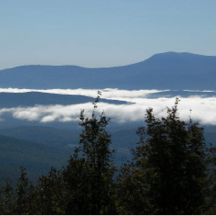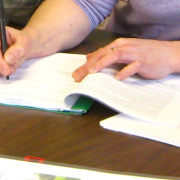Is Perpetuity Really Forever?
Is Perpetuity Really Forever?
Vermont legislation seeks an answer
Jeanie McIntyre, April 4, 2013
There are an estimated 17.7 million acres currently protected by conservation easements in the United States. Conservation easements, according to the national Land Trust Alliance, are “the most traditional tool for conserving private land … a legal agreement between a landowner and a land trust or government agency that permanently limits uses of the land in order to protect its conservation values.† The Land Trust Alliance further explains, “When you donate a conservation easement to a land trust, you give up some of the rights associated with the land. For example, you might give up the right to build additional structures, while retaining the right to grow crops. Future owners also will be bound by the easement’s terms. The land trust is responsible for making sure the easement’s terms are followed.â€
Since the earliest days of conservation easements, land trusts have asked themselves about the promises being made to landowners and their communities. How long is perpetuity? Can we really guarantee that conservation easements will remain intact and effective over time? What force will our legal contracts have in the face of the environmental, economic and political changes that our planet will experience in the next 100, 200 or 500 years? Â When these tough questions were posed on a land trust listserv in 1999, Doug Koop, Executive Director of Little Forks Conservancy in Midland Michigan shared his thoughts:
“ I wouldn’t waste my time worrying about 100 years from now. We are doing what we can. Can you assure me that the second coming is not 20 years away? Will the US exist as a country in 100 years? Will we all live off condensed food and solar energy? Will a mutant disease wipe out humanity?
We’re doing good. And as long as the easements are written to the highest standards that we are aware of, we should be okay.
P.S. Maybe this guy needs a vacation.â€
I have kept Doug Koop’s email message on my bulletin board for 15 years, because it expresses the delicate balance of commitment and uncertainty inherent in land trust work. Absolutely, conservation easements are meant to stand up over time. If not, why bother to include the detailed list of specific restrictions and the statements about the land trust’s obligations to enforce? And just as absolutely, we know that our world is not static. We individual practitioners are making promises into a future beyond our lifetimes and beyond our control. It helps to have a sense of humor (Thank you, Doug).
After months of meetings by a legislative study group, the Vermont legislature is considering legislation (S.119) that seeks to address the challenges that arise in upholding permanent conservation easements in an ever-changing world. The drafters of S.119 have tackled this challenge by laying out types of changes that a land trust might propose for a conservation easement and then creating a process of public review and third-party approval for amendments of conservation easements in the state. Proponents feel that the new law would provide transparency and consistency for changes made to permanent easement documents, and thus would strengthen public confidence in land conservation.
The law is lengthy and complex (more than 40 pages long!) and would add cost and new layers of review to the existing means of amending conservation easements. UVLT Project Manager, Sara Cavin, has been tracking the bill and has prepared a summary of its key features.
During the study group discussions last fall and as S. 119 has been reviewed by legislators this session, UVLT has stressed the importance of the rights and interests of landowners who make charitable gifts of conservation easements and has worked hard to see that the bill incorporates this. After all, we are promising that these conservation easements are lasting in perpetuity! Additionally, UVLT has voiced its conviction that the terms of existing legal contracts between landowners and land trusts should not be superseded by state law, and that the state law should not conflict with federal law (tax law) or limit a landowner’s ability to claim a federal tax deduction for a gift of a conservation easement. Many of our concerns have been addressed as the bill has changed during the legislative process.
S. 119 will come up for debate and a vote on the Senate floor on April 5th.  It is our understanding that it will then move to the House Natural Resources & Energy Committee.  Proponents are continuing to fine-tune it and plan to suggest revisions during the House review process. Those with interest can refer to the VT legislative schedule here: http://www.leg.state.vt.us/ or search for the bill itself using that feature on their website.
UVLT will continue to heed Doug Koop’s advice and work with landowners to write easements “to the highest standards that we are aware of,†bearing in mind that “permanent†need not mean “static†and adaptation to change can be anticipated and provided for in perpetual agreements.



